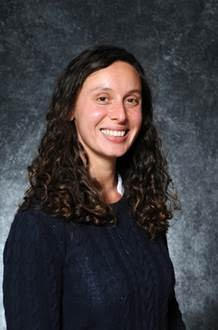Emma Aronson Receives Two Grants from NSF
Emma Aronson, an assistant professor of plant pathology and microbiology, has received two grants from the National Science Foundation for conducting research on projects aimed at generating a greater understanding of the microbial role in biogeochemical cycling.
“These projects will deepen an existing understanding of the role of microorganisms in regulating biogeochemical processes,” Aronson said.
The first project, for which Aronson received funding of $627,000 for two years, will allow for the collection of biogeochemistry and microbial ecology data across the Critical Zone Observatories (CZOs), and the use of “EarthCube” software to analyze that data in new and interesting ways.
“There is no scientific consensus on the best ways to integrate data on biogeochemical process rates with microbial community analysis,” Aronson said. “This project will test and improve various methods for data integration and analysis. We will contribute to improvements in EarthCube software, and will train young researchers to use these new tools, which will be freely available to scientists around the country and the globe.”
The second project, for which Aronson received funding of $92,000 for two years, will organize a group of microbial ecologists to analyze National Ecological Observatory Network (NEON) data, in conjunction with other data sources, and will make that data available to researchers around the country and the globe.
“There is a vast pool of untapped NEON soil microbial community data that has been generated by a multi-million dollar NSF investment, and we will be among the first to access this data and ascertain its significance,” Aronson said.
Aronson joined UCR in 2013. She received her doctoral degree from the University of Pennsylvania, after which she was a NOAA Climate and Global Change Postdoctoral Fellow at UC Irvine.
